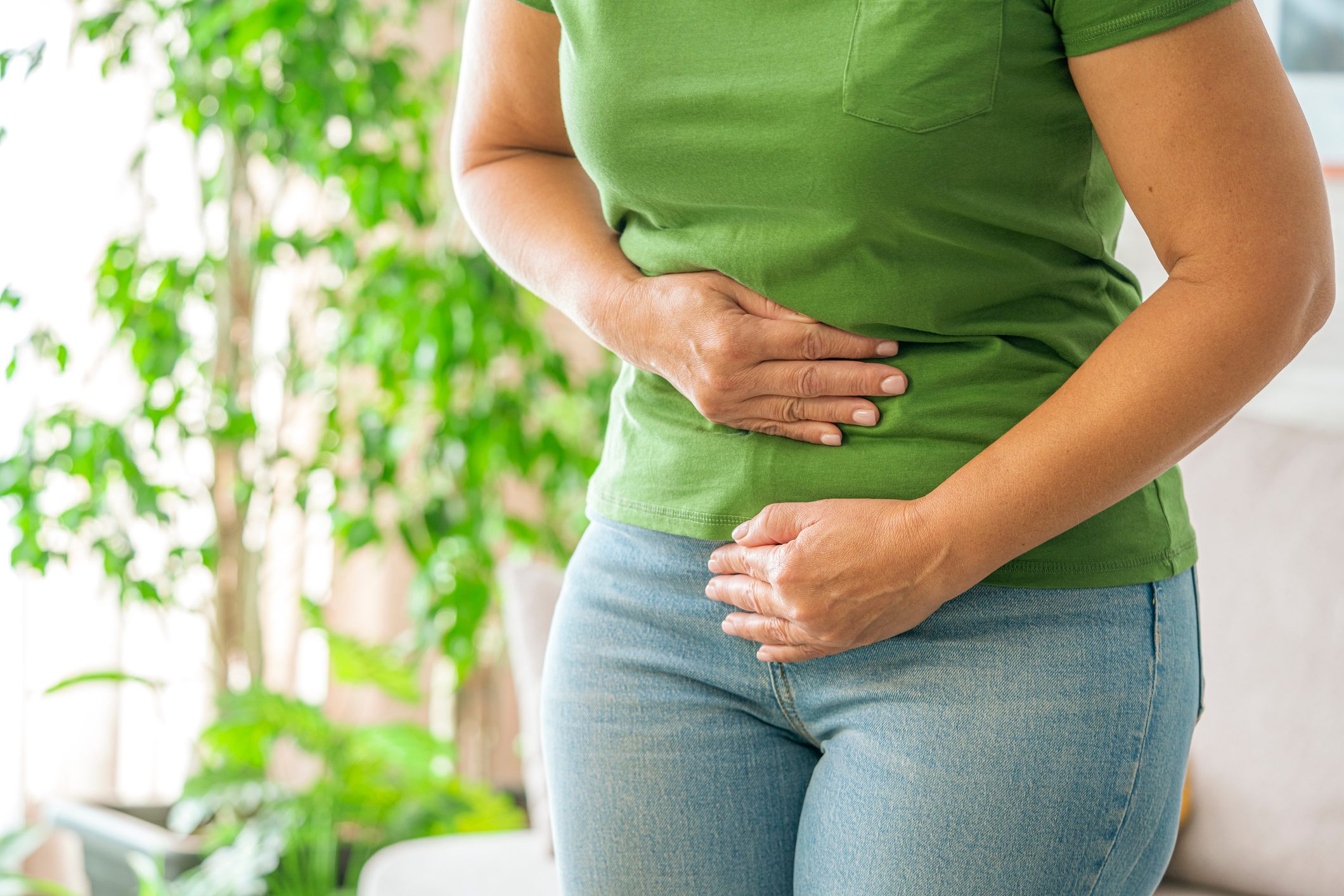Research by gastroenterology doctors in Mexico has uncovered an intriguing long-term effect—and more than half of Americans say it applies.

New Study: If You Notice This Digestive Symptom, It Could Be from Covid

The full impact of Covid-19 may not be known for generations. However, as researchers probe some of the less-discussed facets of the global health crisis, it’s becoming clear that the pandemic changed public health in some very unprecedented ways.
Case in point: According to a 2018 study released before the start of the Covid pandemic, 61% of surveyed Americans said they had experienced gastrointestinal symptoms, including acid reflux, stomach pain, bloating, diarrhea, or constipation, within the week prior. Now, a study published in September 2024 suggests that there’s been a marked increase in GI symptoms since the Covid era.
Many chronic cases of gastrointestinal upset could be the result of past Covid itself, the researchers behind the study say. “During the pandemic, multiple studies demonstrated that the presence of gastrointestinal symptoms can be related to the SARS-CoV-2 infection itself. There is also a relation between symptoms, such as abdominal pain, and a more severe course of COVID-19,” explains the study, which was published in the journal of the Mexican Association of Gastroenterology.
However, the researchers also hypothesize that other “factors due to the COVID-19 pandemic, in addition to and independent of SARS-CoV-2 infection, could have an impact on the prevalence of different gastrointestinal symptoms during the pandemic lockdown period.”
Focusing on the gut-brain axis, the researchers looked at how stress related to lockdown measures, weight changes, and other lifestyle factors triggered by the pandemic may have influenced long-term digestive health.
Analyzing a total of 298 subjects, the researchers noted that they saw “a significant increase in the frequency of several gastrointestinal symptoms: epigastric burning, early satiety [premature fullness], heartburn, regurgitation, constipation, and diarrhea.”
To control for gastrointestinal symptoms caused by Covid sickness, they excluded potential subjects with “a history of SARS-CoV-2 infection and moderate-to-severe COVID-19 disease, consequently requiring hospitalization, or that had presented with gastrointestinal symptoms during COVID-19 presentation.”
Ultimately, they found that weight changes, supplement and multivitamin intake, dietary changes, and reduced physical activity were the most notable risk factors for long-term gastrointestinal problems in a post-Covid era. According to self-reported statistics:
- 50% of the study subjects gained weight during the study period
- 66% made negative changes to their diets
- 58% decreased their physical activity
- and, stress perception was “showed a significant increase in all its items evaluated individually and in its overall score, upon comparing the perception of those surveyed before and during the pandemic lockdown.”
Though many of us have embraced our “new normal,” it can be helpful to remember that some of the unfavorable changes we’ve experienced since peak Covid times—including physical symptoms—could still be reversed and remedied. Talk to your doctor about any pandemic-related changes you’ve experienced in your health, even if you don’t believe those changes are the direct result of a past Covid illness.
For daily wellness updates, subscribe to The Healthy by Reader’s Digest newsletter and follow The Healthy on Facebook and Instagram. Keep reading:
- Free Covid Tests Are Available Again. Here’s How to Get Them
- Which Vaccines Do You Need in 2024-25? Here Are Experts’ Recommendations for All Ages
- Research: Doing This One Thing for 90 Minutes After Your Flu or COVID Vaccine Maximizes Your Immunity
- 5 Long COVID Symptoms That’ll Help Explain the Way You’re Feeling



















